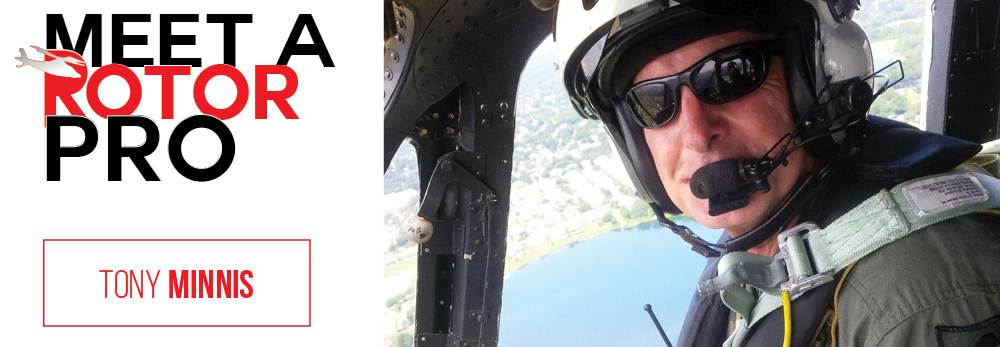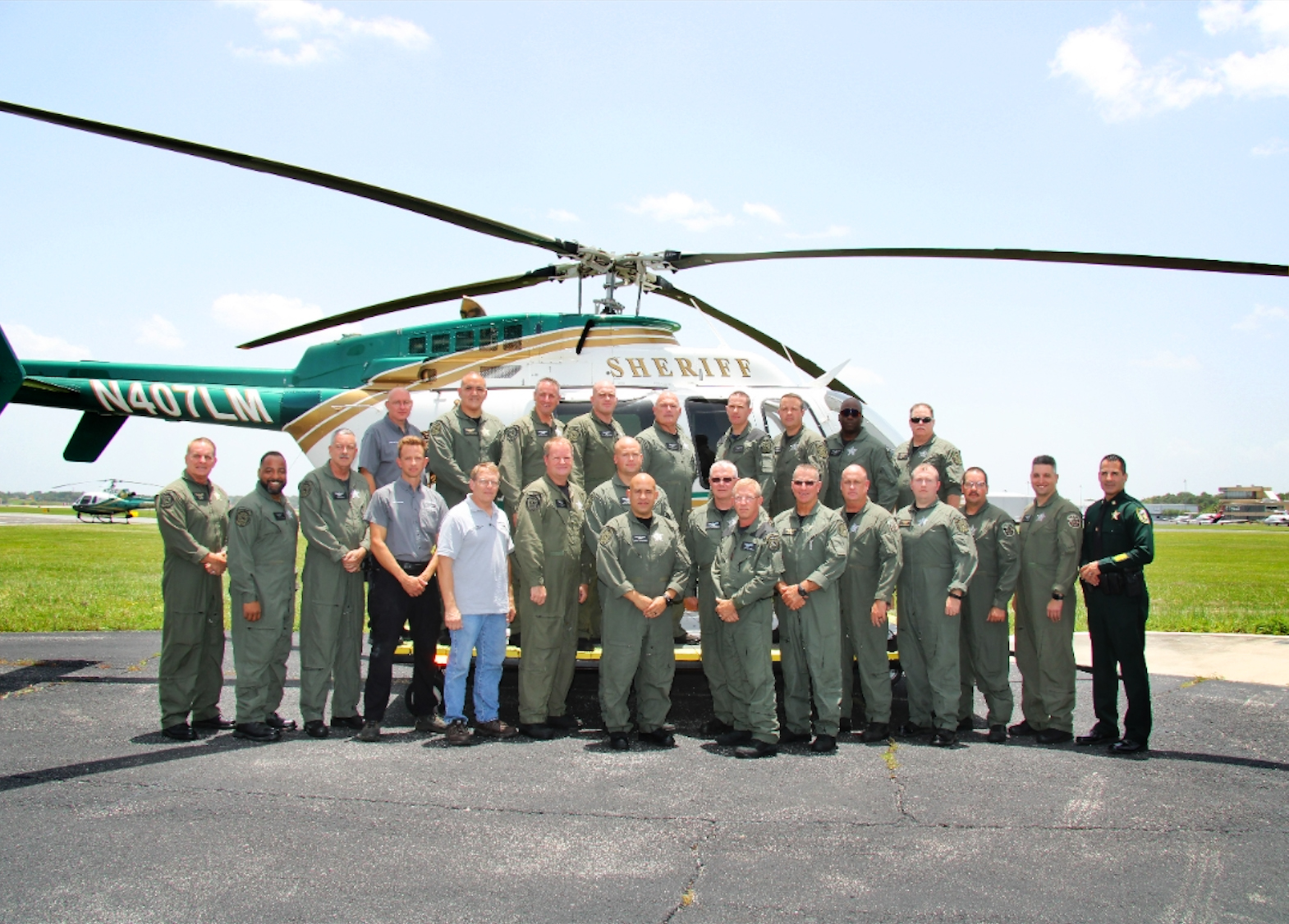|
Sep
26
2022
|
|
Posted 3 years 158 days ago ago by Admin
|
|

RPMN: What is your current position?
I recently retired as the Aviation Section captain for the Orange County Sheriff's Office in Orlando, Florida. The Section has four helicopters, one fixed-wing aircraft, and 24 full-time personnel consisting of pilots, flight observers and mechanics. There are additional part-time personnel available on an as-needed basis.
RPMN: Tell me about your first flight or experience with helicopters.
My first flight in a helicopter was when I was assigned as an A-4 plane captain with VMA-131 in the U.S. Marine Corps. We flew on a CH-53 from Willow Grove Naval Air Station in Pennsylvania to Lakehurst Naval Air Station in New Jersey. It was a fantastic experience. The pilots were Vietnam veterans who truly enjoyed their work and took time to explain what they were doing as well as how the systems operated on the aircraft. From that point on I was hooked on becoming a pilot.
RPMN: How did you get your start in helicopters?
I began working as a flight observer with the Orange County Sheriff's Office Aviation Section, which had both helicopter and fixed-wing aircraft. As I already had a fixed-wing license, I was chosen for a pilot position to fly the fixed-wing aircraft assigned to the Section. After a short time, I received my helicopter rating. I was blessed to fly helicopters for the sheriff as a line pilot, as well as to fly part time for the news media and a tourist operation.
RPMN: When and how did you choose to fly or work on helicopters? Or did they choose you?
As long as I can remember, I had three career goals: firefighter, police officer, and pilot. When I was discharged from the USMC, I became a firefighter/EMT for a fire department in Pennsylvania before transitioning to law enforcement. My original aviation-related plan was to be an airplane pilot for personal and recreational purposes. I never thought that being able to fly helicopters was an option until, being in the right place at the right time, I was selected to become a pilot for the Orange County Sheriff's Office. Having the opportunity to obtain my helicopter rating was truly a dream come true.
RPMN: Where did you get your start flying or maintaining professionally?
After I got out of the Marine Corps and started in police work, I began to obtain my fixed- wing ratings starting in 1982. I flew for fun up until I was chosen for a pilot's position with the Sheriff's Office in 1999. I flew as a line pilot for years while being promoted through the ranks to lieutenant. For further promotional consideration, I worked in the Traffic and Patrol sections until being promoted to captain where I led the Street Crimes Section and the Traffic Section before returning to aviation as section commander.

RPMN: If you were not in the helicopter industry, what else would you see yourself doing?
As I started my career in law enforcement, that's where I would have remained. I enjoyed being a cop for many years, so it was where I was happiest. I truly never saw myself getting the opportunity to fly as part of my career. It was definitely a life and career changing experience.
RPMN: What do you enjoy doing on your days off?
Being retired now, I find that I have time to do things that never seemed to make it to the top of the priority list. My family and I love to travel, whether by car, plane, train or boat. And I've found myself spending more time at the beach since I grew up in the Ormond Beach area. My next fun goal will be to obtain my seaplane rating though as I've been on several flights and truly enjoy it.
RPMN: What is your greatest career accomplishment to date?
During my time as the captain in the Aviation Section, we embarked on a mission to upgrade our equipment with the latest technology as well as upgrade our downlink infrastructure. I would have to say that the greatest accomplishment was to obtain a fourth helicopter for the Section. Due to the number of hours our Section flew, we were constantly in maintenance cycles which, at times, limited our effectiveness. Obtaining that helicopter was a great way to leave the agency.
RPMN: Have you ever had an “Oh, crap” moment in helicopters? Can you summarize what happened?
I was fortunate not to have a true "Oh, crap" moment. The biggest challenge was probably suffering a hydraulics failure in one of our Bell 407 aircraft while flying a mission in the northwest part of the county at night. We were fortunate to have emergency procedures training twice a year that included hydraulic failures, so it was a relatively uneventful flight back to the airport. Admittedly, there was a little white-knuckled landing. Taking the time to train definitely paid off as the response to that event was well rehearsed, which minimized the stress of the incident.
RPMN: If you could give only one piece of advice to a new helicopter pilot or mechanic, what would it be?
Never stop learning. Pay attention to your instructors and senior pilots and mechanics. The amount of wisdom and tips I received over my years of flying served me well throughout my career.
RPMN: In your view, what is the greatest challenge for the helicopter industry at this moment in time?
The biggest challenge I see is the ability to fill open positions with qualified personnel. A lot of long-time talent has retired or left the industry; it's a challenge to find experienced replacements. Due to the high cost of the training pilots and mechanics, and with competition from more lucrative aviation jobs, it seems to be difficult to attract those that would be the best investment for the future.
READ MORE ROTOR PRO: https://justhelicopters.com/Magazine
WATCH ROTOR PRO YOUTUBE CHANNEL: https://buff.ly/3Md0T3y
You can also find us on
Instagram - https://www.instagram.com/rotorpro1
Facebook - https://www.facebook.com/rotorpro1
Twitter - https://twitter.com/justhelicopters
LinkedIn - https://www.linkedin.com/company/rotorpro1